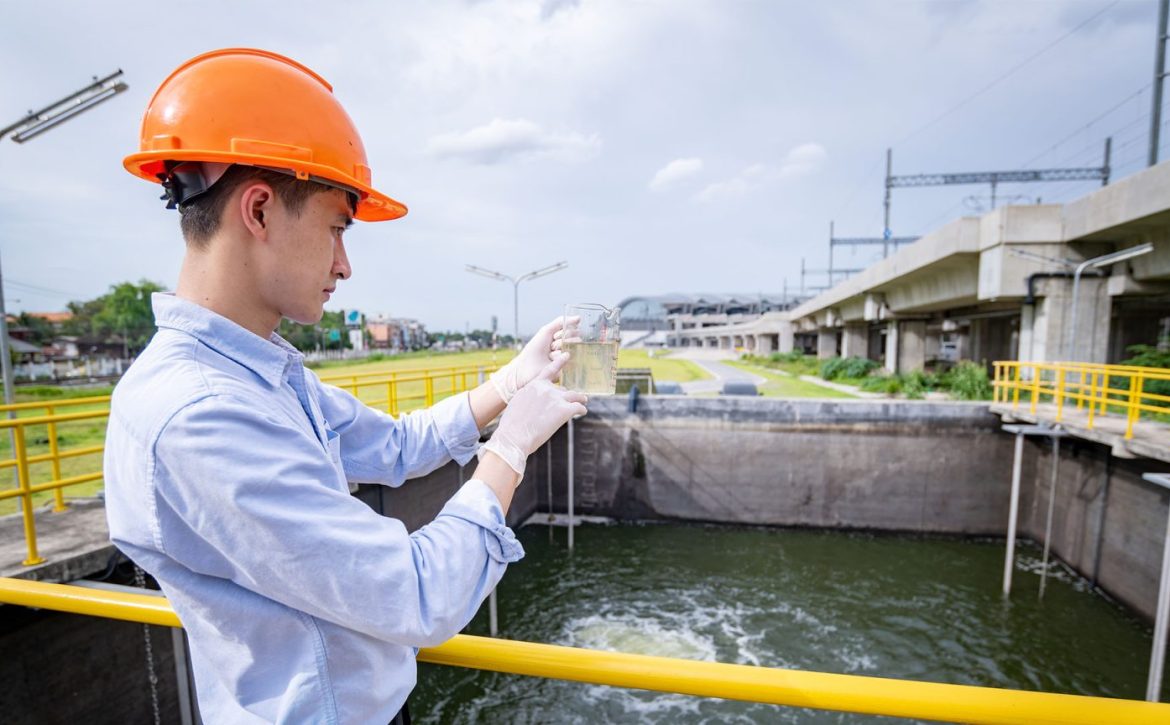AI’s Role in Improving Water Resource Management
AI’s Role in Improving Water Resource Management

Water is one of the most vital resources on Earth, essential for all forms of life and critical for various human activities. However, managing this precious resource effectively poses significant challenges, including scarcity, pollution, and inefficient usage. Artificial Intelligence (AI) is emerging as a powerful tool to address these challenges by enhancing water resource management. This article explores how AI is revolutionizing water management through real-world examples and in-depth insights.
Table of Contents
- Introduction to Water Resource Management
- The Role of AI in Water Management
- Key AI Techniques in Water Management
- Applications of AI in Water Management
- Monitoring Water Quality
- Predicting Water Demand
- Optimizing Irrigation Systems
- Managing Water Distribution Networks
- Detecting Leaks and Preventing Losses
- Real-World Examples of AI in Water Management
- Challenges and Limitations
- Future Trends and Developments
- Conclusion
Introduction to Water Resource Management
Water resource management involves the planning, development, and management of water resources to meet the needs of society while ensuring sustainability and minimizing environmental impact. Effective water management is crucial for agriculture, industry, domestic use, and maintaining healthy ecosystems.
The Role of AI in Water Management
Artificial Intelligence is playing an increasingly important role in water management by providing advanced tools and techniques for data analysis, prediction, and optimization. AI can analyze large volumes of data from various sources, identify patterns and trends, and make informed decisions to improve water resource management.
Key AI Techniques in Water Management
Machine Learning
Machine Learning (ML) algorithms can process vast amounts of data to identify patterns and make predictions. In water management, ML can be used to forecast water demand, predict weather patterns, and optimize water usage.
Predictive Analytics
Predictive analytics involves using historical data to make predictions about future events. This technique is essential for anticipating water demand, detecting potential issues in water distribution networks, and planning for extreme weather events.
IoT Integration
The Internet of Things (IoT) involves connecting sensors and devices to collect and transmit data. Integrating IoT with AI allows for real-time monitoring and management of water resources, providing timely insights and enabling proactive decision-making.
Applications of AI in Water Management
Monitoring Water Quality
AI-powered systems can continuously monitor water quality by analyzing data from sensors and detecting anomalies. These systems can identify contamination sources and predict water quality trends, helping to ensure safe drinking water and maintain ecosystem health.
Example: The U.S. Environmental Protection Agency (EPA) uses AI to monitor water quality and detect contaminants in real-time. Read more.
Predicting Water Demand
AI models can predict water demand based on historical data, weather patterns, and population growth. Accurate demand forecasting helps water utilities manage resources efficiently and plan for future needs.
Example: Smart water management systems in Singapore use AI to predict water demand and optimize supply. Read more.
Optimizing Irrigation Systems
AI-driven irrigation systems use weather data, soil moisture levels, and crop requirements to optimize water usage. These systems ensure that crops receive the right amount of water at the right time, reducing waste and improving yields.
Example: Netafim’s AI-powered irrigation solutions optimize water usage in agriculture, improving efficiency and crop productivity. Read more.
Managing Water Distribution Networks
AI can help manage water distribution networks by monitoring flow rates, pressure levels, and detecting leaks. These systems can optimize the operation of pumps and valves, reducing energy consumption and ensuring reliable water supply.
Example: Aqueduct, a water management platform, uses AI to optimize water distribution networks and reduce operational costs. Read more.
Detecting Leaks and Preventing Losses
AI algorithms can analyze data from sensors and identify patterns indicative of leaks in water distribution systems. Early detection of leaks helps prevent water loss and reduces repair costs.
Example: WaterScope, an AI-based solution, detects leaks in municipal water systems and provides real-time alerts to prevent water losses. Read more.
Real-World Examples of AI in Water Management
1. IBM – Water Management Solutions
IBM uses AI to provide predictive analytics and optimization tools for water management. Their solutions help cities and industries manage water resources efficiently. Read more.
2. Xylem – Smart Water Solutions
Xylem’s AI-driven solutions optimize water and wastewater management, ensuring efficient resource usage and improving sustainability. Read more.
3. Microsoft – AI for Earth
Microsoft’s AI for Earth initiative supports projects that use AI to improve water resource management and address environmental challenges. Read more.
4. Google – Flood Forecasting
Google uses AI to predict and monitor floods, providing early warnings and helping communities prepare for extreme weather events. Read more.
5. Siemens – Digital Water Solutions
Siemens uses AI and IoT to provide digital water solutions that enhance water resource management and improve operational efficiency. Read more.
6. Schneider Electric – Water Management
Schneider Electric’s EcoStruxure platform uses AI to optimize water and wastewater management, ensuring efficient operations and sustainability. Read more.
7. Ayyeka – Remote Monitoring Solutions
Ayyeka’s AI-powered remote monitoring solutions provide real-time data on water quality, flow, and other parameters, helping utilities manage resources effectively. Read more.
8. Veolia – Smart Water Management
Veolia uses AI to optimize water treatment processes and improve the efficiency of water management systems. Read more.
9. Kando – Wastewater Management
Kando’s AI-based solutions monitor and optimize wastewater management, ensuring compliance with environmental regulations and improving operational efficiency. Read more.
10. Hitachi – Water Management Solutions
Hitachi uses AI to provide advanced water management solutions, including predictive maintenance and optimization of water distribution networks. Read more.
Challenges and Limitations
Data Availability and Quality
AI systems require large volumes of high-quality data to function effectively. Ensuring the availability and accuracy of data can be challenging, especially in regions with limited monitoring infrastructure.
Cost and Infrastructure
Implementing AI solutions for water management can be costly and require significant infrastructure investments. Developing countries may face challenges in adopting these technologies due to financial constraints.
Ethical and Privacy Concerns
The use of AI in water management raises ethical and privacy concerns, particularly related to data collection and usage. Ensuring transparent and responsible use of AI is crucial to addressing these concerns.
Future Trends and Developments
As AI technology continues to evolve, its impact on water resource management will only grow. Future trends may include greater integration with renewable energy, advancements in predictive analytics, and support for decentralized water management systems.
Integration with Renewable Energy
Future AI solutions for water management may integrate with renewable energy sources, optimizing the use of water and energy resources and promoting sustainability.
Advanced Predictive Analytics
Advancements in predictive analytics will enhance the accuracy of demand forecasting, leak detection, and water quality monitoring, enabling more proactive and efficient water management.
Decentralized Water Management
AI technologies will support decentralized water management systems, allowing communities to manage their water resources locally and reducing reliance on centralized infrastructure.
Conclusion
AI is transforming water resource management by providing advanced tools for monitoring, prediction, and optimization. From improving water quality and predicting demand to optimizing irrigation and detecting leaks, AI is helping to ensure sustainable and efficient water usage. As technology continues to evolve, AI’s role in water management will only grow, offering innovative solutions to address global water challenges.
For more insights and updates on the latest in AI and water management, visit TGI.
